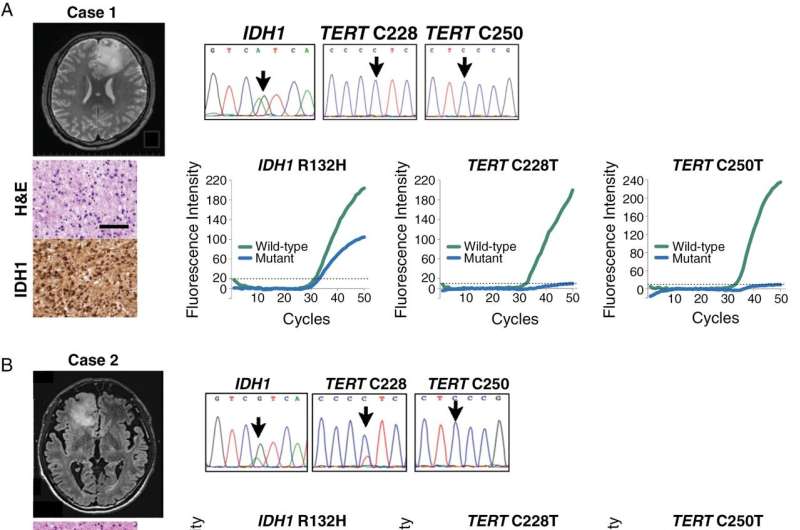Unlike conventional genetic analysis methods, which typically take one to two days to obtain results, this new system allows surgeons to identify genotyping of brain tumors and determine optimal resection margins during surgery.
The new system succeeded in detecting mutations in isocitrate dehydrogenase (IDH) and telomerase reverse transcriptase (TERT) promoters. These mutations are key markers for diagnosis of diffuse glioma—the most common type of brain tumor—which exhibits a highly infiltrative nature. The findings were published in the journal Neuro-Oncology.
The research team at Nagoya University Graduate School of Medicine, led by researchers Sachi Maeda, Fumiharu Ohka, and Professor Ryuta Saito, developed this system to improve diagnostic accuracy during surgery.

